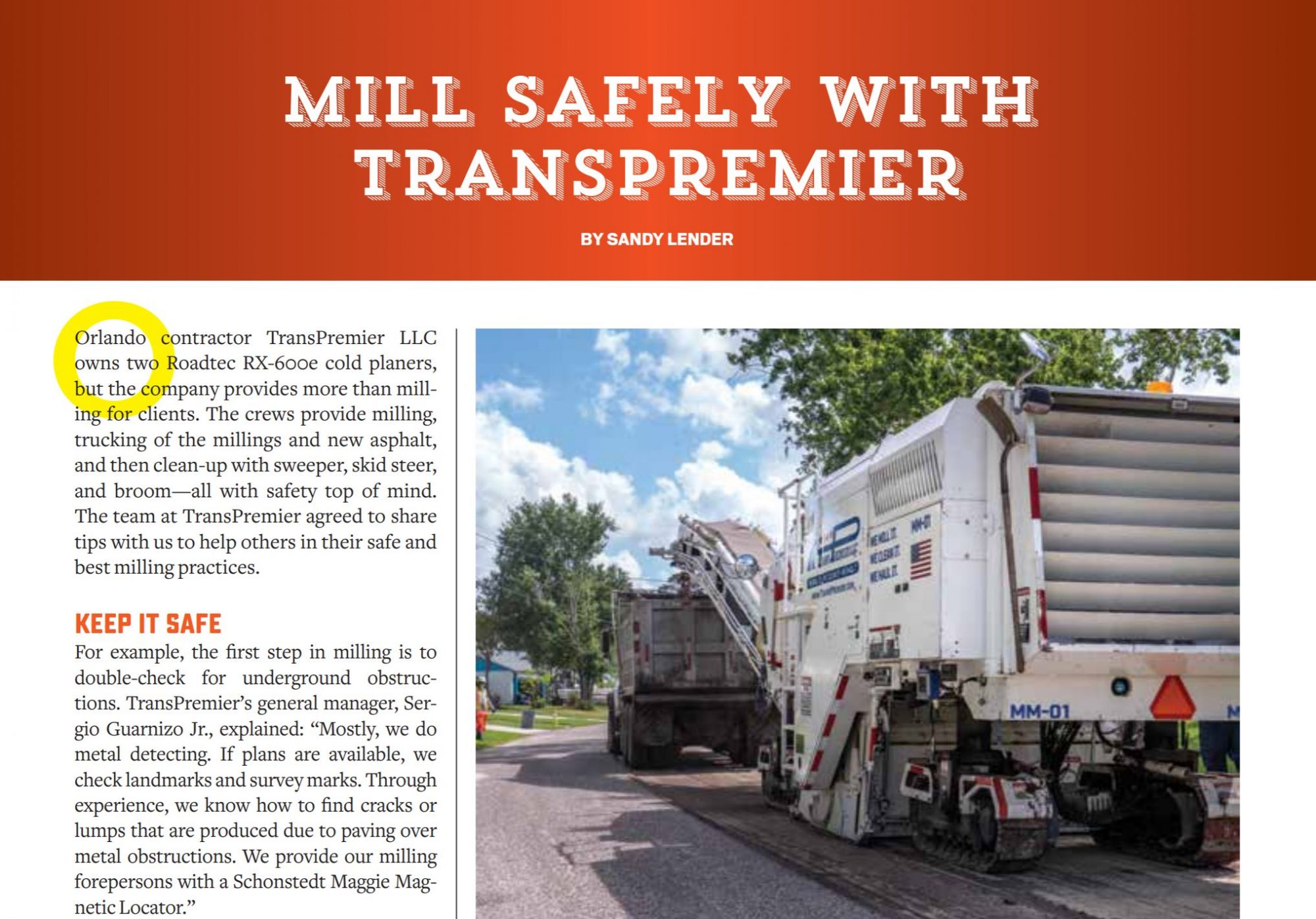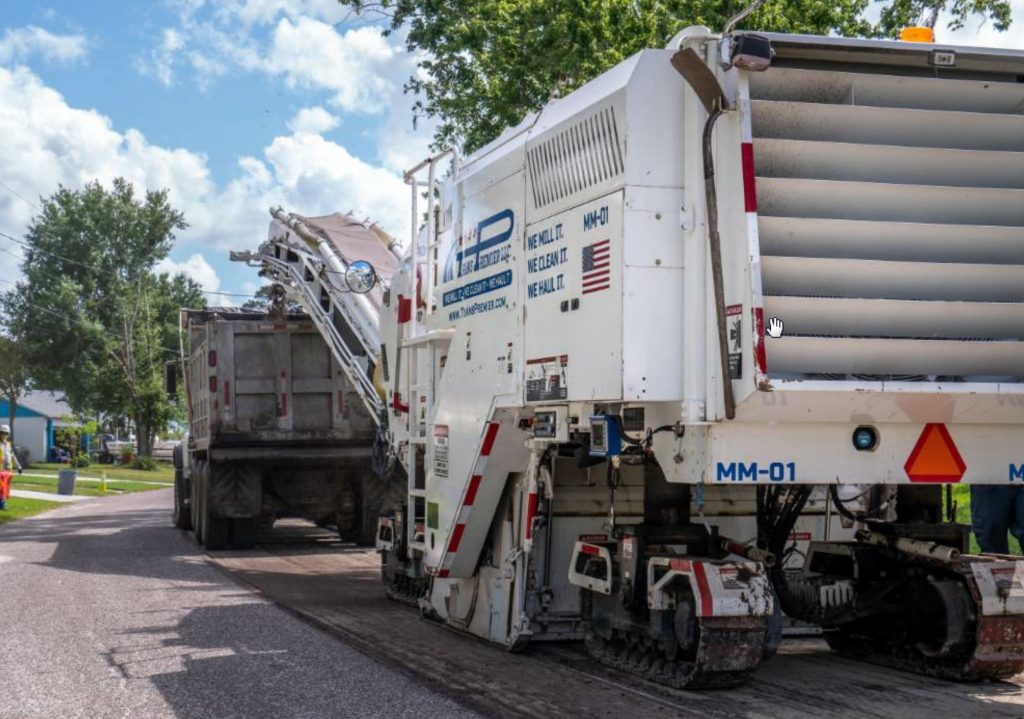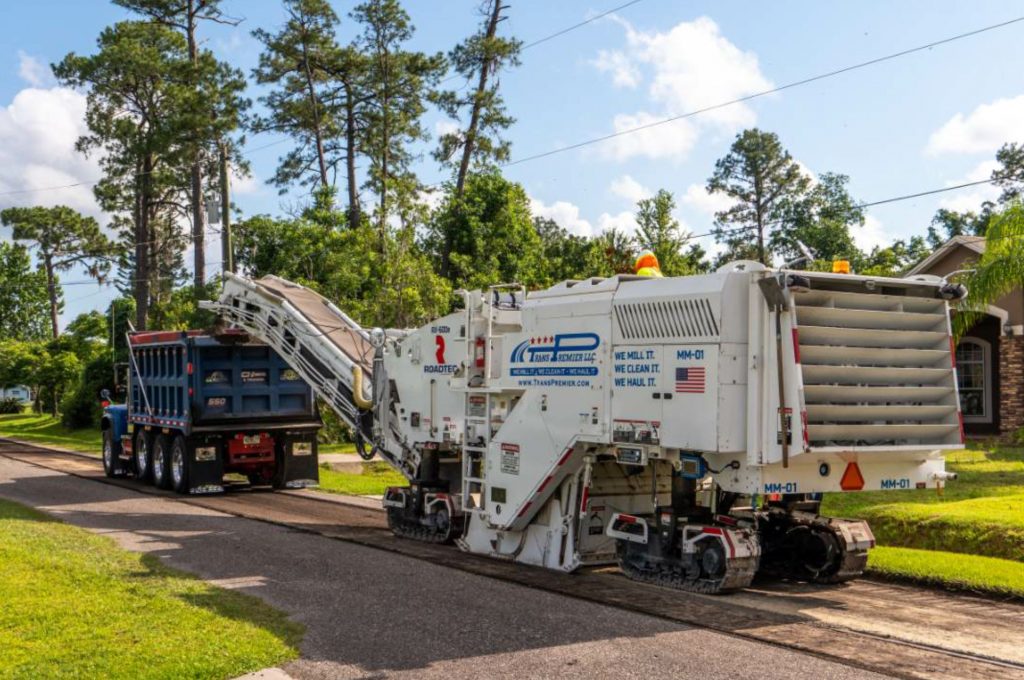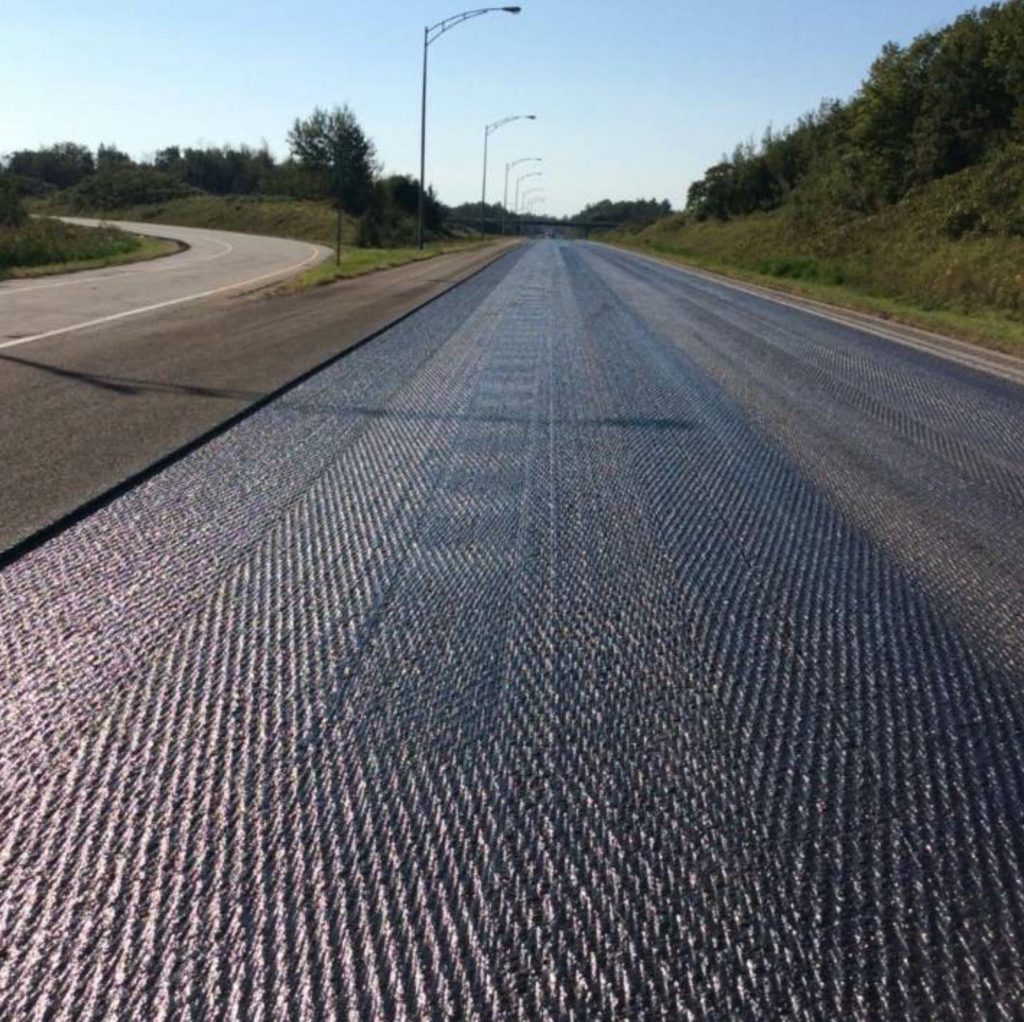Mill Safely with TransPremier
BY Sandy Lender

Visit our main Training Directory article to see more training-related resources and discover more about opportunities to train your crew. You can also check out our Partner Courses listing for additional training opportunities.
Orlando contractor TransPremier LLC owns two Roadtec RX-600e cold planers, but the company provides more than milling for clients. The crews provide milling, trucking of the millings and new asphalt, and then clean-up with sweeper, skid steer, and broom—all with safety top of mind. The team at TransPremier agreed to share tips with us to help others in their safe and best milling practices.
Keep it Safe
For example, the first step in milling is to double-check for underground obstructions. TransPremier’s general manager, Sergio Guarnizo Jr., explained: “Mostly, we do metal detecting. If plans are available, we check landmarks and survey marks. Through experience, we know how to find cracks or lumps that are produced due to paving over metal obstructions. We provide our milling forepersons with a Schonstedt Maggie Magnetic Locator.”
When preparing for a mill-n-fill project, the first step at the project for TransPremier’s milling crew foreman is to tend to the machine. “He/she performs maintenance on the machine, does the pre-trip inspection and performs daily maintenance like changing teeth and hydraulic fluids,” Guarnizo shared.

Here a TransPremier truck accepts millings from one of the company’s two Roadtec RX-600e cold planers. Photos courtesy Roadtec Inc., Chattanooga
With the machine ready for the shift, the foreman will turn to communication next. “Access to important information and constant communication are key to a successful, and more importantly safe, project,” Superintendent Carlos Cintron explained on keys for a successful and safe project. “The milling foreman must contact the job’s superintendent, project manager and/or paving foreman to identify the project’s plan and safety hazards. The foreman then must communicate with his/her milling crew. Part of the communication includes reviewing the first two steps and making sure the entire team is wearing their personal protective equipment.”
Having PPE is just one part of the safety equation at TransPremier. They suggest every milling crew remember personal safety on every shift. “Every job is a little different,” Foreman Joel Plummer said. “Different roads, highways, depths, surroundings. Keep eyes on traffic, stay clear of moving parts. Always make eye contact with your machine operator.” He listed PPE, having a clear mind for the task at hand, and having a plan and direction of what they’re doing that shift as part of each worker’s job for safety.
TransPremier also protects workers from respirable crystalline silica dust. They use water to keep dust down, of course, and include vacuum systems on machines. “Our Roadtec RX-600e is equipped with a dust vacuum and water system to prevent dust and overheating teeth,” Guarnizo shared. “For other services, like clean-up, we have equipped all our machines—brooms, skid steers, sweepers—with water to reduce silica clouds and all have enclosed cabins.”
Keep it Profitable
Staying safe is only half the battle in the field. Milling takes attention to detail, which means training new workers to get best practices under their belts quickly. The team at TransPremier wants everything done right for their customers, and the top tips they recommend for getting the cut right include:
• Check that the holder and teeth are good—perform your maintenance
• Determine machine and drum speed based on depth and distance—this allows a good cut
• Metal detecting is crucial—hitting a metal structure damages the drum, which leads to bad cuts

The TransPremier LLC crews provide milling, trucking of the millings and new asphalt, and then clean-up with sweeper, skid steer, and broom—all with safety top of mind.
You want to confirm the cut that the general contractor or owner wants. “Check the depth speed of the machine and ensure the teeth are good every shift,” Guarnizo shared. The level of wear they look for includes fractures on the holders. They use a measuring mic to measure the length of the holder. “Usually, if the holders are getting worn, then the teeth will definitely break,” Guarnizo warned. He explained that leaving a bad cut means your maintenance is not up to standards and the teeth are bad.
At this time, TransPremier uses carbon-tip teeth for asphalt cuts, but are looking at diamond teeth for deep mill cuts coming up.
This is all important to teach the new worker. TransPremier performs training before “going live” with any new hire. “During our onboarding process, we review our safety and environmental policies and what is expected in terms of quality and customer service,” Guarnizo shared. “Crewmembers treat each project with respect and attention to detail, because they feel pride in what they are accomplishing with the company.” Crewmembers receive competitive wages and are guaranteed 40 hours a week.
Guarnizo advised having a load meter on the mill to help crewmembers with work. “Thankfully, our vast experience in dump trucks allows us to include our own dump trucks in the training process. This way our supervisors and drivers can provide feedback on how the mill operator is loading. It’s important to load starting from the front working its way to the back, to keep it clear and steady, and never bulk it up.”

Photo courtesy of BOMAG
Conclusion
“It ultimately comes back to the team, the people working together to achieve a mission-driven goal,” Guarnizo added. “Something we always preach at TransPremier is that we are all The Team, from all the people involved in operations; operators, our forepersons leading the machines; to the shop, payroll, accounting, to HR, all the way up to my parents, the founders. Without all of us doing our part, those machines would not work to the best of its abilities.”
